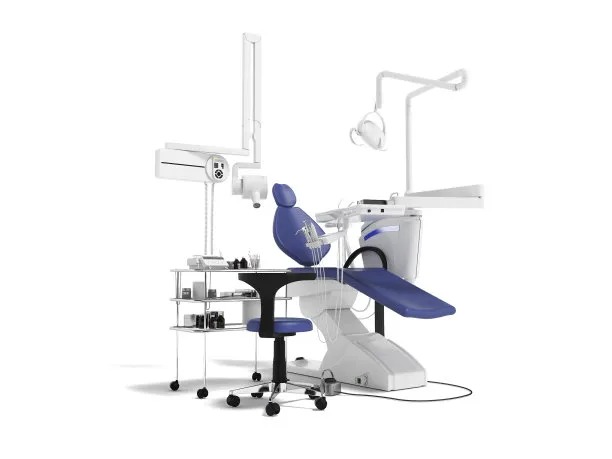Summary: Dental filling procedures are often necessary to restore teeth affected by decay, trauma, or wear. Ensuring safety and effectiveness during this process is paramount for achieving the desired health outcomes. This article will delve into essential precautions that can make dental filling procedures safer and more effective. We will cover aspects including effective communication with the dentist, proper pre-procedure care, understanding the procedural steps, and aftercare and follow-up protocols. By adhering to these precautions, patients can enhance their comfort, minimize anxiety, and ensure the longevity of their dental work. Together, these steps create an ideal environment for successful treatment and promote better oral health.
1. Effective Communication with Your Dentist

Effective communication is the cornerstone of any successful dental procedure. Before your filling procedure, its crucial to discuss your dental history and any concerns you may have with your dentist. Provide detailed information about allergies, previous dental experiences, and current medications. This will help your dentist tailor the procedure to your individual needs.
Another critical aspect of communication is understanding the treatment plan. Ensure you have a clear grasp of how the filling process works, the materials to be used, and the expected outcome. Don鈥檛 hesitate to ask questions that arise during these discussions. A well-informed patient is typically more relaxed, leading to a smoother procedure.
Finally, discuss any anxieties you may have regarding the procedure. Dentists can often provide options for sedation or other methods to make you more comfortable during dental work, addressing your fears effectively.
2. Proper Pre-Procedure Care
Pre-procedure care is essential to maximize the effectiveness of a dental filling. Start by following any pre-appointment instructions given by your dentist. This might include recommendations for diet, hygiene, and specific medications. Proper oral hygiene before your visit can help ease the procedure and reduce any potential complications.
Furthermore, consider scheduling your appointment at a time when you are least likely to feel rushed or stressed. This may enhance your comfort level and promote a more positive experience during the filling procedure. Making arrangements for transportation can also alleviate stress鈥攅specially if sedation is involved.
Lastly, maintain a healthy lifestyle leading up to your appointment. Staying hydrated, eating nutritious foods, and getting adequate sleep can help create a robust foundation for your health and contribute positively to the procedure.
3. Understanding the Dental Filling Procedure
Familiarizing yourself with the steps involved in the dental filling procedure can greatly reduce anxiety and improve outcomes. Typically, the process starts with an examination and X-ray to understand the extent of the damage. Afterward, your dentist will prepare the affected area by numbing it, ensuring you鈥檙e comfortable throughout.
Once the area is prepared, the dentist will remove the decay and clean the cavity. This step is crucial, as any remnants of decay can lead to further complications. After cleaning, the filling material is applied, shaped, and polished to match your original tooth structure, ensuring both aesthetic and functional outcomes.
Being informed about each step provides reassurance and creates a better patient experience. Knowing what to expect can enable you to relax, allowing your dentist to perform the work more effectively.
4. Aftercare and Follow-Up Protocols
Aftercare is equally important in ensuring the success of your dental filling. Follow your dentists post-procedure instructions carefully, which may include advice on what foods to avoid, how to manage discomfort, and when to resume normal activities. Typically, patients are advised to avoid hard or sticky foods for at least 24 hours.
Additionally, be mindful of any signs of complications, such as prolonged pain or sensitivity. If you experience any unusual symptoms, contact your dentist immediately to address potential issues before they escalate.
Staying up to date with regular dental check-ups also contributes to the longevity of your filling and overall oral health. These visits will help monitor your dental work and provide timely interventions if necessary.
Summary:
In summary, maintaining open communication with your dentist, preparing adequately for the procedure, understanding the steps involved, and adhering to proper aftercare are essential precautions for a safe and effective filling process. Each of these factors plays a crucial role in ensuring not only the success of the dental procedure but also the overall well-being of the patient.
This article is compiled by Vickong Dental and the content is for reference only.
Vickong Dental
Vickong Dental is a large medical group established in Hong Kong in 2008 by professors from well-known medical universities in Guangdong and Hong Kong, as well as medical doctors from key national '985' universities (including Master's supervisors and senior professors). The chain of branches brings together expert dentists with PhDs and Master's degrees from Hong Kong and Mainland China, committed to providing high-quality dental treatment.
"Vickong Dental Practices the University Motto of 'Healing and Serving Society,' with a Stable Operation for Sixteen Years. It Has Been honored with Hong Kong Enterprise Leaders's Choice,' and is a Global Trusted Implant Center for the Nobel Implant System. Recommended by Hong Kong Metro Broadcast and Guangdong Television, it Serves Customers from Over Thirty Countries and Regions, Gaining the Trust and Favor of Citizens from the Guangdong-Hong Kong-Macau Greater Bay Area and Surrounding Cities.

Thousands of customers' unanimous praise
The most recognized and highly recommended dental service by customers in the Guangdong-Hong Kong-Macau Greater Bay Area
We Ensure You Receive Detailed Care and Attention Here
Hong Kong standards, Shenzhen prices, Your Trusted English-speaking dentists

Vickong Dental Medical-Grade Instrument Disinfection Process
Vickong Dental Medical-Grade Instrument Disinfection Process

Vickong Dental Chain: A Warm and Comfortable Environment for Treatment






Appointment Hours

Q&A
Why choose Vickong Dental?
Vickong Dental practices the university motto 「Medicine to Benefit Society」, with each branch bringing together highly qualified dentists with doctoral and master’s degrees from Hong Kong and the Mainland, and has maintained seventeen years of steady operation。Recipient of 「2024 Hong Kong Enterprise Leaders Brand」, 「2025 Hong Kong Enterprise Leaders Brand」, a Nobel Biocare Global Trusted Implant Center, and a brand recommended by Metro Radio Hong Kong and Guangdong TV。
To date, we have served customers from more than thirty countries and regions,earning exceptionally high word-of-mouth recognition and trusted recommendations from residents across the Guangdong-Hong Kong-Macao Greater Bay Area and surrounding cities
We have eight major branches in Zhuhai、Shenzhen,and a consultation and service assurance center in Hong Kong,so you can book a free consultation at any time for any questions,which is very reassuring.
If I do not accept the quotation after the CT scan, will I be charged??
No! As long as the actual treatment has not started, you will not be charged any fees.
Will there be any additional charges during the treatment process?
No, there won’t be any additional charges. Before treatment begins, we will clearly explain the treatment plan and its corresponding fees. Only after the patient agrees and signs the consent form will we proceed with the dental service.
Can I pay in Hong Kong dollars?
Yes. Vickong Dental accepts payment in Hong Kong dollars. The amount will be converted based on the exchange rate of the day, and the applicable rate will be clearly communicated to you in advance.
Can I reschedule my appointment at any time?
Yes. Please contact us via **WeChat** or **WhatsApp** as early as possible, providing your original appointment time and details, along with your preferred new date and time slot for rescheduling.













